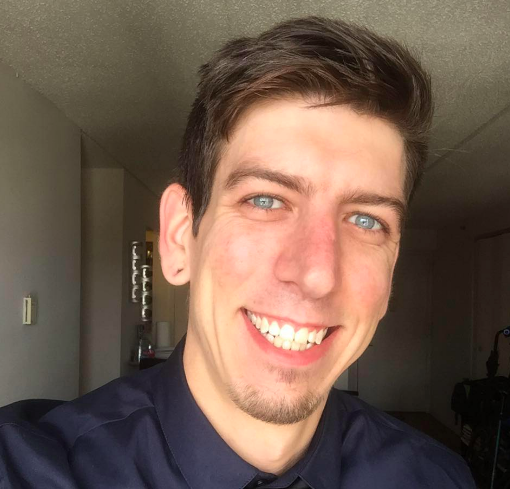Choosing to be a General Manager in hospitality is less of a career choice and more of a lifestyle. It takes a great amount of dedication, passion, tenacity and an incredible amount of self-sacrifice to do the job well. GM’s work very long hours, often opening and closing the restaurant; double shifts are not uncommon; and holidays are basically nonexistent since time off is rare. A great majority of your job as a GM is putting out other people’s fires, even if it’s not in your job description. Every. Single. Day. So, how do the best of the best make it work? We combed through our network at Harri.com, and asked some of our best GM’s how they manage to keep it together in this high-stress position. Chris Finkenor of LAVO Nightclub, Nikki Pasquale of The Counter, and Tim Meyers of Santina discuss their views on what it takes to be a great GM.
Set the Standard
Being a great leader is not just a title, but a series of actions that earn the respect of your team. Not everyone has the skill set to maintain a team with the decorum of GM’s in the hospitality industry. The way you manage your space not only trickles down to guests but the entire staff. Chris Finkenor of LAVO Nightclub explains; “I try to be the first one in and the last one out every night to show [that] a GM that doesn't quit until the last team member has left the building.” When employees see you working as hard as they do, they recognize it, and will have your back during service.
According to Nikki Pasquale of The Counter, to be a great GM, you have to be a master of “time management, efficiency, dedication, [and] knowledge [of your restaurant]”. Honing your management skills sets the standard for your staff that not only do you practice what you preach, but are worthy of their trust and work ethic. Taking full ownership of your restaurant requires the ability to obtain influence: as Tim Meyers from Santina analogizes, “She [the GM] is a politician lobbying on behalf of owner to landlord; of chef to vendor; of policy to staff.” As a General Manager, you are the ultimate diplomat, and serve as the liaison from the top (owners, investors) to the bottom (line-level staff and guests). The life of a GM can be overwhelming at times--well, most of the time. If you remember to lead how you would want to be led then things will begin to fall into place, and your employees will follow.
Keep a Positive Attitude, Even in Chaos
Leaving your drama at the door is easier said than done in any profession, but it’s even more important in hospitality when you constantly have face time with guests and staff. Maintaining your optimism is key, even though you’re down 3 servers and the kitchen fan decided to stop working during dinner service. Despite the chaos of operations, Meyers claims that a capable GM “[...] will set the mood in every room she enters and [...] know everything there is to know about the store she leads.” When staff and guests look to you to lead, you must keep calm under pressure no matter the circumstances. The same goes for whatever situations may arise in your personal life. Finkenor realizes that “[e]xhibiting a positive attitude, day in and day out, [..] leaving whatever is going on outside of work is what makes a solid GM. ” There are those managers, who might argue an aggressive or even an angry approach is more effective to get things done. However, at the end of the day, do you want your staff to fear you or respect you? Re-think positivity as the way to go because everyone knows: you catch more flies with honey.
Never Lose Sight of Your Team
All hospitality spaces are delicate ecosystems that need constant attention to flourish. Only a competent manager and capable staff can give a restaurant or nightclub the high level of maintenance required. Meyers stresses the importance of this concept as, “[a]n effective General Manager understands her influence and makes a conscious decision to invoke self confidence, positivity and company culture in every interaction that she has with her team.” Having the awareness that you are the driving force of your team will give you a better perspective on how to delegate and communicate to your team effectively. Meyers continues, “I have found that the most effective General Managers do not regard themselves as mentors, but instead earn this title from the team they lead.” GM’s must have the expertise to captivate and lead their staff with purpose. It takes great skill to command this sort of respect.
Authenticity is a must in this profession, as disingenuous intentions are always picked up by employees. According to Meyers, a solid GM “[...] will not guide with her ego or make the business a place to develop an agenda. Instead the effective General Manager recognizes that the success she is expected to achieve comes from allowing the owner’s vision, the guest, and the team to tell her which area to begin and end her day.” To not see the value in working towards the success of those around you is a disservice to your team, yourself, and ultimately the business. It all comes down to realizing that the backbone of this industry is its people.
Expect to Go Above and Beyond
Working in hospitality is clearly a team effort, and like any sport, no job is too small. As a GM you have to be capable of doing the jobs of all of your employees, if not better. Pasquale testifies to this fact explaining that General Managers should, “[a]lways expect to do your job PLUS 10% more {at least].” There is always work to be done, and when a busser is failing to refill glasses or clear tables, you need to step in. Expecting the unexpected is a huge part of the job-- according to Pasquale, “[t]ake what you know and your skill set [into consideration], and keep your expectations open 100% because you may have to handle something out of your element.” If a bathroom begins overflowing toilet water into the dining room during a busy service at 10 PM, YOU have to find a solution until a plumber can reach you--all while maintaining your staff, the floor, and ensuring your guests are happy. At LAVO Nightclub, Finkenor attests to this concept that you cannot be afraid of “getting your hands dirty whether picking up glasses, moving barricades or even helping bus a bunch of tables is what makes [...]” a great GM. If you believe that any task is “below you”, then being a General Manager is definitely not the job for you. Great GM’s have the drive and passion to do whatever it takes to keep their spaces up and running.
Utilize The Tools Around You
Holding any leadership position in the industry is a challenge, but there are systems that can help you manage your team better and cut costs. Make sure your team’s schedules are clearly posted and organized. Some managers swear by Excel; some prefer to use Word; and some still use a pen and paper--but there are better, more modern solutions. TeamLive is a great option for those managers who are looking to communicate with their team members, create schedules faster and proactively manage track of labor costs all on one platform. Staff can also communicate on TeamLive to facilitate shift changes, and managers can be notified for permission. Tools like this can save you what little time you have to spare to focus on running your business. Also if you have a choice in POS Systems, figure out what is right for you. Aloha, Digital Dining, and Micros are very popular, but crash easily and take a lot of back-end maintenance. iOs POS systems are becoming more common: Salido, Brink, and Revel lead the way with their seamless iPad systems. The only downside is that iPads can be very fragile, which is tough in an industry where equipment durability is a virtue. However, maintaining the system and changing buttons around are much more user-friendly. Remember: tools you have will remain just that, unless they are put to work by great managers.
Love What You Do
Overall, being a General Manager is a hard job, and requires a special type of person to take on the position. There is the rush of service, the high from leading a team through a rough shift (or two if working a double), and the thrill of knowing that your efforts make a difference. After working at The Counter for almost four years, Pasquale attributes her longevity to one statement: “Above all, love what you do”. Life is too short to not do what you enjoy, and too long to be stuck in a profession you dislike. At Santina, Meyers sentimentalized, “[a] General Manager loves her restaurant, and because of that each of these tasks, while exhausting, continue to feed the fire she earnestly walks through everyday.” While the job may be taxing and take some toll on your social life, it’s satisfying for those who have the passion for it. As a club promoter-turned-GM, Finkenor jests, "[i]f you don't love it, then what are you even doing here?" Unfortunately, some managers choose to push through the job even if they know it’s not for them, dragging their teams and business through the mud. So, to those people, do your team and the industry a favor and quit. Leave it up to the Finkenors, Pasquales and Meyers of the world, who truly love what they do, and are capable of doing it well.









